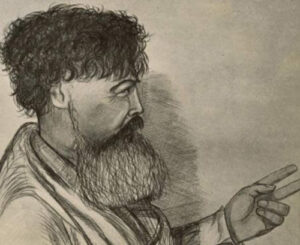COMMENT: By Crosbie Walsh
Media giant Stuff, after a protracted study of its own history, announced this week that much that it has published on Māori has been racist. It has apologised for this and introduced guidelines (a Treaty of Waitangi-based charter) to improve its record.
Surprisingly, left-leaning journalist Chris Trotter has condemned these initiatives, saying apologising for your history is to admit you don’t understand it (with which I disagree) and that the apology is likely to result in a White backlash, with which, unfortunately, I cannot disagree.
But he appeared unconcerned or unaware of the ongoing Māori backlash evident since at least the 1950s. He did not mention Nga Tamatoa, Bastion Point, the Land March, the Raglan and Wanganui protests, the foreshore and seabed issues, or the creation of the Māori Party.
He wrote of rewriting history while failing to recognise that it had in fact already been rewritten, by commission and omission— by Pākeha.
Only relatively recently have the “Māori” Wars and the Wairau “Massacre” been renamed the Land Wars and the Wairau Affair.
Until relatively recently the Treaty of Waitangi was considered meaningless, and a number of influential Pākeha still think so.
What is more, Māori are still being held solely responsible for the consequences of the Pākeha rewriting and resultant marginalisation: their poor health and crime rates, poor education levels, family breakdown, child abuse, drug use, and on and on.
The appalling story of Parihaka
Trotter wrote that to rewrite was to not understand, but the appalling story of Parihaka that he mentioned in passing was not even known to Pākeha until Dick Scott, who died this year aged 97, wrote The Parihaka Story (1954) and its expanded Ask that Mountain (1975).

In 1881, some 1600 troops equipped with cannon invaded the village on the slopes of Mt Taranaki (Mt Egmont?) in response to Māori removing surveyor pegs and ploughing confiscated land. The ploughmen and leaders Te Whiti-o-Rongomai and Tohu Kākahi were arrested and imprisoned without trial. Te Whiti was arrested again in 1883 and 1886.
Today, if you see Taranaki women wearing white feathers in their hair it is in memory of Parihaka and Te Whiti whose repeated peaceful passive resistance has been likened to that of Mahatma Gandhi.
Not too long ago, no Māori language, cultural mores or history were taught in our secondary schools (indeed, there were few Māori teachers) and the universities were little better.
I well remember a quite heated argument with my history lecturer at Victoria, Mary Boyd, in the early 1960s. She maintained the Treaty had no validity or use. I only got a “B” in that paper!
I remember also the PPTA Journal article in 1970 concerning teachers’ college students who researched Wairau. They concluded Māori had ambushed the NZ Company, starting the killing, ignoring the fact that it was only after Te Rangihaeata’s wife had been killed that the Māori responded in earnest; the fact that the NZ Company had illegally provoked the affair, hoping to forestall Commissioner Spain’s enquiry that was likely to determine the NZ Company’s title was invalid.
Māori land was invaded
It was Māori land that they had invaded.
This is not what those teachers’ college students were taught, or what they would teach to their pupils. I know because one of them was a young colleague of mine.
The Journal printed my response (“Another view of the Wairau Affair”) but much of the damage was already done. What was taught in our schools and universities, if it was taught at all, was this sort of a Pākeha version of history.
I’m sorry, Chris Trotter. We definitely need to rewrite history, if only to correct what little we know.
Thoughts on the Stuff’s Charter
Stuff’s charter recognises the media’s “enormous impact in shaping public thought … and societal norms”. It claims to be “a brave new era for NZ’s largest media company”.
The intentions of the charter are commendable but there’s no mention in the charter of Māori editors, columnists and journalists, only a separate acknowledgement by the CEO to redress their under-representation.
Also, there appear to be no explicit Māori organisational structures within the organisation, and no mention of any Māori inputs to the charter. I wonder if any Māori helped to write the charter, or whether this is another example of well wishers hoping to do things to and for Māori?
Without these structures and “by Māori” inputs, good intentions may not amount to very much. We’ll have other Oranga Tamariki sagas.
But it’s a start in the right direction for which Stuff should be congratulated. I wonder how many other organisations will follow its example.
This column is republished with permission.
Article by AsiaPacificReport.nz








